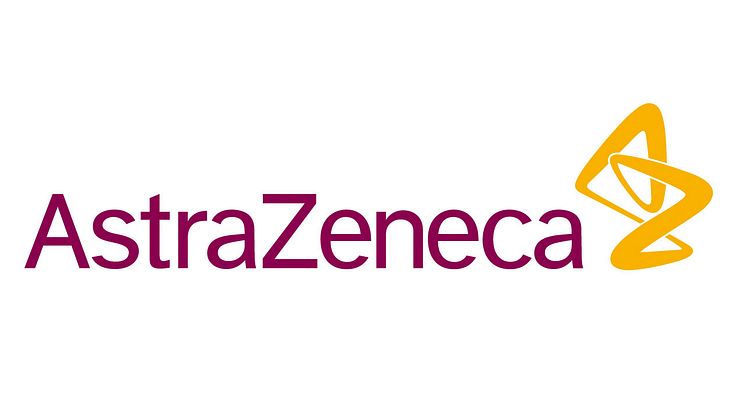
Pressmeddelande -
Farxiga Phase III DAPA-CKD trial paradigm-shifting data to be presented at ESC 2020
Farxiga shows significant benefit across all primary and secondary endpoints in patients with chronic kidney disease with and without type-2 diabetes
Additional data from AstraZeneca’s broad portfolio reinforce the potential of its medicines to treat cardiovascular and renal diseases
AstraZeneca will present the highly anticipated detailed results from the ground-breaking Phase III DAPA-CKD trial of Farxiga in chronic kidney disease (CKD) at ESC Congress 2020 – The Digital Experience.
These results are among 20 abstracts being presented by AstraZeneca at ESC between 29 August to 1 September 2020 showcasing the breadth of its cardiovascular (CV), renal and metabolic portfolio.
In July 2020, the Company announced that the DAPA-CKD trial met all primary and secondary endpoints in patients with CKD. High-level results showed a statistically significant and clinically meaningful effect with Farxiga on the trial’s primary endpoint of a composite of worsening of renal function or risk of death in CKD patients with and without type-2 diabetes (T2D).1 The results also make Farxiga the first medicine to significantly reduce the risk of death from any cause in this patient population compared to placebo.1
DAPA-CKD is yet another landmark trial from AstraZeneca’s global DapaCare clinical programme, which is dedicated to exploring the potential of Farxiga to protect against CV and renal disease.2
The programme first shared results from the DECLARE-TIMI 58 trial, the largest CV outcomes trial conducted for an SGLT2 inhibitor to date, showing that Farxiga achieved a statistically significant reduction in the composite endpoint of hospitalisation for heart failure (hHF) or CV death versus placebo.3 The Phase III DAPA-HF trial results followed DECLARE, showing that Farxiga was the first SGLT2 inhibitor to improve outcomes in patients with heart failure with reduced ejection fraction (HFrEF) with and without T2D.2
Mene Pangalos, Executive Vice President, BioPharmaceuticals R&D, said: “The remarkable DAPA-CKD results which will be shared at this year’s ESC Congress bring us closer to transforming the management of chronic kidney disease, a condition associated with significant patient morbidity. These data, along with the wealth of new insights being presented across our wider portfolio, show our relentless dedication to advancing science across cardiovascular, metabolic and renal diseases.”
Key highlights at ESC Congress 2020 include:
•New sub-analyses from the THEMIS trial including an oral presentation on peripheral artery disease (PAD) outcomes, on estimating the cost-effectiveness of Brilinta in patients who had a history of percutaneous coronary intervention (PCI), plus real-world evidence for THEMIS-like patients with T2D and coronary artery disease without prior myocardial infarction or stroke.9-11
| Lead author | Abstract title | Presentation details |
| Farxiga | ||
| Heerspink, H | DAPA-CKD: Dapagliflozin in Patients with Chronic Kidney Disease | Hot Line Sunday, 30 August 17:00 – 17:30 CEST |
| Furtado, R | Efficacy and Safety of Dapagliflozin according to Baseline Blood Pressure - Observations From DECLARE-TIMI 58 Trial | Blockbusters Saturday, 29 August 8:30 – 8:36 CEST |
Scholtes, R |
Natriuretic Effect of 2 Weeks of Dapagliflozin Treatment in Patients with Type 2 Diabetes and Preserved Kidney Function: Results of the DAPASALT Trial | Rapid Fire Abstracts Monday, 31 August Available on demand |
Kristensen, SL |
Dapagliflozin Reduces the Risk of Hyperkalaemia in Patients with Heart Failure and Reduced Ejection Fraction: A Secondary Analysis DAPA-HF | Rapid Fire Abstracts Saturday, 29 August Available on demand |
Dewan, P |
The Effect of Dapagliflozin in Patients with HFrEF and COPD: A Post-hoc Analysis of DAPA-HF | ePoster Friday, 28 August Available on demand |
| Docherty, KF | The Effect of Dapagliflozin Across the Spectrum of Baseline Risk: A Post-hoc Analysis of DAPA-HF | ePoster Friday, 28 August Available on demand |
| Lokelma | ||
| McEwan, P | The Relationship Between Duration of Heart Failure, Serum Potassium Concentration and Adverse Clinical Outcomes | Advances in Science Sunday, 30 August 11:56 – 12:06 CEST |
McEwan, P |
Estimating the Burden of Hyperkalaemia in the UK in High-risk Patient Populations | ePoster Friday, 28 August Available on demand |
| McEwan, P | Assessing the Relationship Between Serum Potassium Variability and the Risk of Hyperkalaemia and Adverse Clinical Outcomes | ePoster Friday, 28 August Available on demand |
Brilinta |
||
| Bonaca, MP | THEMIS-PAD Ticagrelor in Patients with and without Peripheral Artery Disease | Late-Breaking Science Tuesday, 01 September 8:30 – 8:40 CEST |
| Willemsen, LM | The Effect of One Year Postoperative Ticagrelor in Addition to Aspirin on Saphenous Vein Graft Patency in Patients Undergoing CABG – A Randomized, Multi-Center, Double-Blind, Placebo-Controlled Trial | Late-Breaking Science Monday, 31 August 9:41 – 9:50 CEST |
Steg, PG |
Cost-effectiveness of Ticagrelor in Patients with Type 2 Diabetes and Coronary Artery Disease with a History of PCI: An Economic Evaluation of THEMIS-PCI Using a Swedish Healthcare Perspective | Best ePosters Monday, 31 August Available on demand |
Blin, P |
Real World Risk of Major Outcomes for Type 2 Diabetes with Stable Coronary Artery Disease Without Prior MI or Stroke and THEMIS-Like Patients Using the SNDS French Nationwide Claims Database | Best ePosters Sunday, 30 August Available on demand |
Vilahur, G |
Administration of a Soluble ADPase, AZD3366, on Top of Ticagrelor Confers Additional Cardioprotective Benefits to that of Ticagrelor Alone | Best ePosters Tuesday, 01 September Available on demand |
Parodi, G |
Orodispersible Ticagrelor Use in Acute Coronary Syndrome Patients: The Ticagrelor Administered as Standard Tablet or orodispersiblE foRmulation (TASTER) Study | Best ePosters Tuesday, 01 September Available on demand |
Blin, P |
Prevalence of Type 2 Diabetes with Stable Coronary Artery Disease but Without Prior Myocardial Infarction or Stroke and THEMIS-Like Patients from the SNDS French Nationwide Claims Database | ePoster Friday, 28 August Available on demand |
Early CVRM and General Disease | ||
| Zhang, R | Lifetime Risk of Cardiovascular-Renal Disease in Type 2 Diabetes: A Population-Based Study in 473399 Individuals | Blockbusters Sunday, 30 August 8:40 – 8:50 CEST |
| Elbeck, Z | An Epigenetic Circuit Linking Oxidative Stress and DNA Hydroxymethylation in Heart Failure | Advances in Science Saturday, 29 August Available on Demand |
Jonsson Boezelman, MKB |
VENTHEART Is Required for Cardiomyocyte Specification and Function | Best ePosters Saturday, 29 August Available on demand |
| Svedlund, S | Resting Coronary Blood Flow Velocity Profile Predicts Coronary Flow Reserve in HFpEF | ePoster Friday, 28 August Available on demand |
All ESC Congress 2020 abstracts are available via the Scientific Programme & Planner.
AstraZeneca in CVRM
Cardiovascular, Renal and Metabolism (CVRM) together forms one of AstraZeneca’s three therapy areas and is a key growth driver for the Company. By following the science to understand more clearly the underlying links between the heart, kidneys and pancreas, AstraZeneca is investing in a portfolio of medicines to protect organs and improve outcomes by slowing disease progression, reducing risks and tackling comorbidities. The Company’s ambition is to modify or halt the natural course of CVRM diseases and potentially regenerate organs and restore function, by continuing to deliver transformative science that improves treatment practices and cardiovascular health for millions of patients worldwide.
AstraZeneca
AstraZeneca (LSE/STO/NYSE: AZN) is a global, science-led biopharmaceutical company that focuses on the discovery, development and commercialisation of prescription medicines, primarily for the treatment of diseases in three therapy areas - Oncology, Cardiovascular, Renal & Metabolism, and Respiratory & Immunology. Based in Cambridge, UK, AstraZeneca operates in over 100 countries and its innovative medicines are used by millions of patients worldwide. Please visit astrazeneca.com and follow the Company on Twitter @AstraZeneca.
Contacts
For details on how to contact the Investor Relations Team, please click here. For Mediacontacts, click here.
References
1.AstraZeneca. Farxiga met all primary and secondary endpoints in groundbreaking Phase III DAPA-CKD trial for the treatment of patients with chronic kidney disease; 2020/07/28 [cited 2020 Aug 25]. Available from: URL: https://www.astrazeneca.com/content/astraz/media-centre/press-releases/2020/farxiga-met-all-primary-and-secondary-endpoints-in-groundbreaking-phase-iii-dapa-ckd-trial-for-the-treatment-of-patients-with-chronic-kidney-disease.html.
2.AstraZeneca. Detailed results from Phase III DAPA-HF trial showed Farxiga significantly reduced both the incidence of cardiovascular death and the worsening of heart failure; 2019/09/01 [cited 2020 Aug 25]. Available from: URL: https://www.astrazeneca.com/media-centre/press-releases/2019/detailed-results-from-phase-iii-dapa-hf-trial-showed-farxiga-significantly-reduced-both-the-incidence-of-cardiovascular-death-and-the-worsening-of-heart-failure-01092019.html.
3.Wiviott SD et al. Dapagliflozin and Cardiovascular Outcomes in Type 2 Diabetes. N Engl J Med 2019; 380(4):347–57.
4.Furtado R et al. Efficacy and safety of dapagliflozin according to baseline blood pressure - Observations from DECLARE-TIMI 58 Trial. Presented at: ESC Congress 2020 - The Digital Experience, 2020 August 29 - September 1.
5.Docherty KF et al. The effect of dapagliflozin across the spectrum of baseline risk: a post-hoc analysis of DAPA-HF. Presented at: ESC Congress 2020 - The Digital Experience, 2020 August 29 - September 1.
6.Kristensen S et al. Dapagliflozin reduces the risk of hyperkalaemia in patients with heart failure and reduced ejection fraction: a secondary analysis DAPA-HF. Presented at: ESC Congress 2020 - The Digital Experience, 2020 August 29 - September 1.
7.McEwan P et al. The relationship between duration of heart failure, serum potassium concentration and adverse clinical outcomes. Presented at: ESC Congress 2020 - The Digital Experience, 2020 August 29 - September 1.
8.McEwan P et al. Assessing the relationship between serum potassium variability and the risk of hyperkalaemia and adverse clinical outcomes. Presented at: ESC Congress 2020 - The Digital Experience, 2020 August 29 - September 1.
9.Bonaca M et al. THEMIS-PAD Ticagrelor in Patients with and without Peripheral Artery Disease. Presented at: ESC Congress 2020 - The Digital Experience, 2020 August 29 - September 1.
10.Steg PG et al. Cost-effectiveness of ticagrelor in patients with type 2 diabetes and coronary artery disease with a history of PCI: an economic evaluation of THEMIS-PCI using a Swedish healthcare perspective. Presented at: ESC Congress 2020 - The Digital Experience, 2020 August 29 - September 1.
11.Blin P et al. Prevalence of type 2 diabetes with stable coronary artery disease but without prior myocardial infarction or stroke and THEMIS-like patients from the SNDS French nationwide claims database. Presented at: ESC Congress 2020 - The Digital Experience, 2020 August 29 - September 1.
12.Elbeck Z et al. An epigenetic circuit linking oxidative stress and DNA hydroxymethylation in heart failure. Presented at: ESC Congress 2020 - The Digital Experience, 2020 August 29 - September 1.
Ämnen
Om AstraZeneca
AstraZeneca är ett globalt, innovationsdrivet bioläkemedelsföretag med fokus på forskning, utveckling och marknadsföring av receptbelagda läkemedel, primärt för behandling av sjukdomar inom tre huvudsakliga terapiområden: cancer, kardiovaskulära sjukdomar, njursjukdomar och metabola sjukdomar och sjukdomar i andningsvägarna. AstraZeneca bedriver verksamhet i över 100 länder och dess innovativa läkemedel används av miljontals patienter över hela världen.
Mer information finns på: www.astrazeneca.com och www.astrazeneca.se. Du kan även följa oss på twitter https://twitter.com/AstraZenecaSE


